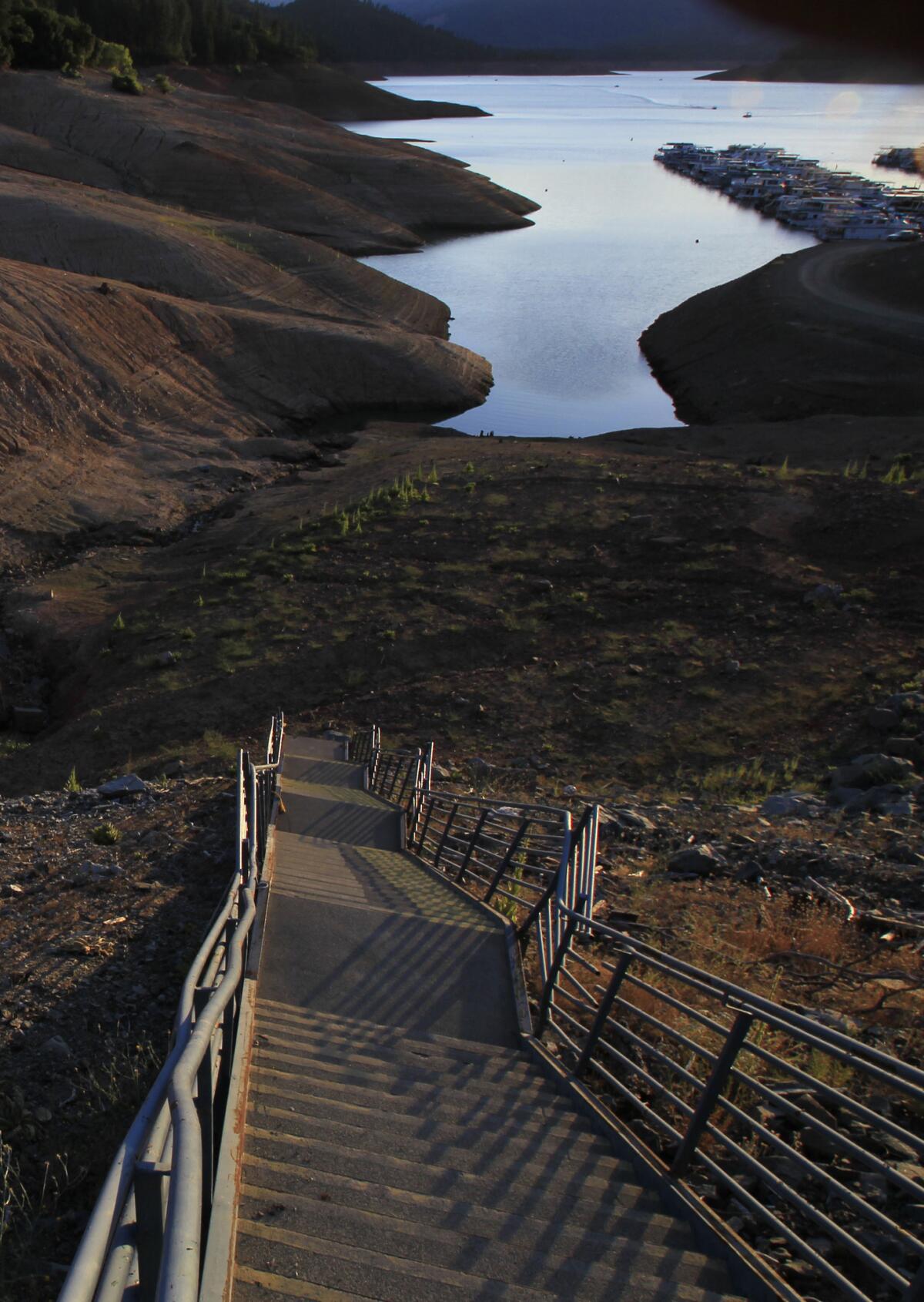California to vote on scaled-down $7.5-billion water bond in November

- Share via
Reporting from Sacramento — After months of political haggling, a ballot measure that will ask voters in November to approve $7.5 billion in borrowing for water projects sailed through the Legislature on Wednesday.
Soon afterward, flanked by dozens of lawmakers from both parties, Gov. Jerry Brown signed the measure, which is intended to provide funds for new reservoirs, water cleanup and environmental protection.
FOR THE RECORD:
This article gave an incorrect vote tally for the Assembly’s approval of a water bond measure for California’s November ballot. The correct tally was 77 to 2.
Passage of the proposal was an “amazing convergence over a big idea,” Brown said. “The big idea is that the future of California needs a lot of water, and we’ve got to use it in the best way possible.”
The measure passed 77 to 1 in the Assembly and unanimously in the Senate. The easy approval belied the months of contentious negotiations that pitted Democrats against Republicans, agriculture interests against environmentalists and myriad regional interests all scrambling to secure a share of the potential bond money for their priority projects.
Many of the projects funded by the borrowing would take years or decades to complete, doing little to mitigate the effects of the drought the state is experiencing. But the state’s parched conditions were a potent catalyst in driving lawmakers — many of whom are up for reelection this year — to a deal.
Assembly Speaker Toni Atkins (D-San Diego) said the drought “has provided the momentum, the absolute rationale and necessity for us to get something done to take care of us long-term.”
The plan replaces an $11.1-billion borrowing proposal written by lawmakers in 2009 that was set to go before voters in November. Legislators had twice postponed a statewide vote on that measure, fearing that its high price tag would doom it at the polls.
Brown pressed for a trimmed-down version, citing concerns about the state’s debt obligations.
The measure would authorize $7.12 billion in new borrowing, and appropriate $425 million in previously approved state bond money that has not been used.
It would put $2.7 billion toward storage projects, such as reservoirs. Republicans, some of whose votes were needed for passage, and Central Valley Democrats had made storage a sticking point in negotiations, insisting until Wednesday morning that they wanted $3 billion.
Bob Huff (R-Diamond Bar), leader of the Senate’s Republicans, said they wanted assurances the funds would be sufficient for two planned storage projects — Sites Reservoir in the Sacramento Valley and Temperance Flat Dam on the San Joaquin River.
“We need to have somebody articulate that we can actually build these projects with this money,” he said. “And the local water agencies were comfortable with this level.”
An additional $800 million would go toward cleanup of contaminated underground water, which topped Los Angeles-area lawmakers’ wish lists. The measure designates $200 million less than what was in the 2009 bond proposal, but Los Angeles legislators say they’re pleased with the package overall.
“Would we have wanted to have more money? Sure,” said Assemblyman Raul Bocanegra (D-Pacoima). “But proportionally, people got what they needed, maybe not what they wanted. And I think it’s fair and equitable.”
Lawmakers also sought to distance the measure from Brown’s controversial proposal to construct two giant tunnels to move water from the Sacramento-San Joaquin Delta to the central and southern parts of the state.
Sen. Lois Wolk (D-Davis) described the bond package as “tunnel neutral,” saying it “includes protections that the funds will not be used for the design, construction, mitigation, operation or maintenance” of the proposed tunnel project.
Twitter: @melmason
Times staff writer Patrick McGreevy contributed to this report.
More to Read
Sign up for Essential California
The most important California stories and recommendations in your inbox every morning.
You may occasionally receive promotional content from the Los Angeles Times.














